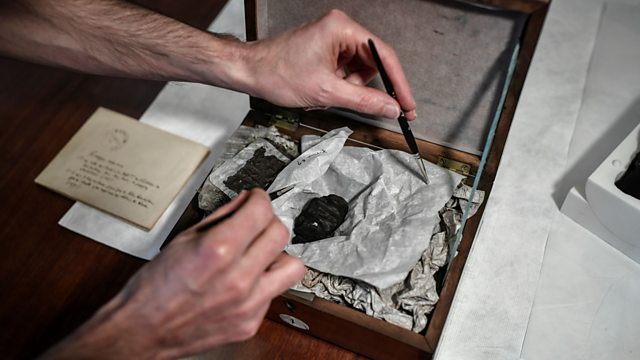AI decodes ancient Roman scroll
“The scroll discusses music, food and eating capers and there’s this whole discussion about whether it’s better to eat whatever you like or maybe deprive yourself”.
A Roman scroll, partially preserved when it was buried in the eruption of Mount Vesuvius in 79AD, has been decoded using artificial intelligence.
The feat was achieved by three contestants in the Vesuvius Challenge, a competition launched in March 2023 in which people around the world raced to read the ancient scrolls.
Nat Friedman is one of the challenge’s organisers. He told Newsday that the scrolls were discovered in the 1750s by Italian farmers digging a well but “what they recovered was not intact…they were ashen, carbonised lumps of coal basically. They were so fragile and delicate that they couldn’t be opened”.
However, they have now deciphered what was written. He added: “The scroll discusses music, food and eating capers and there’s this whole discussion about whether it’s better to eat whatever you like or maybe deprive yourself…because then you’ll enjoy the food a little bit more.”
(Picture: Shows a box with the remains of Herculaneum papyri, Roman-era scrolls carbonised in the deadly eruption of Mount Vesuvius nearly 2,000 years ago. Credit: Stephane De Sakutin / AFP via Getty Images.)
Duration:
This clip is from
More clips from Newsday
-
![]()
Liam Payne: Fans mourn death of One Direction singer
Duration: 03:35
-
![]()
Sudan's footballers provide 'joy amongst the chaos'
Duration: 04:00
-
![]()
Hurricane Milton: The residents deciding to stay, or evacuate
Duration: 02:59
-
![]()
Mpox spreading rapidly in Burundi
Duration: 03:21






